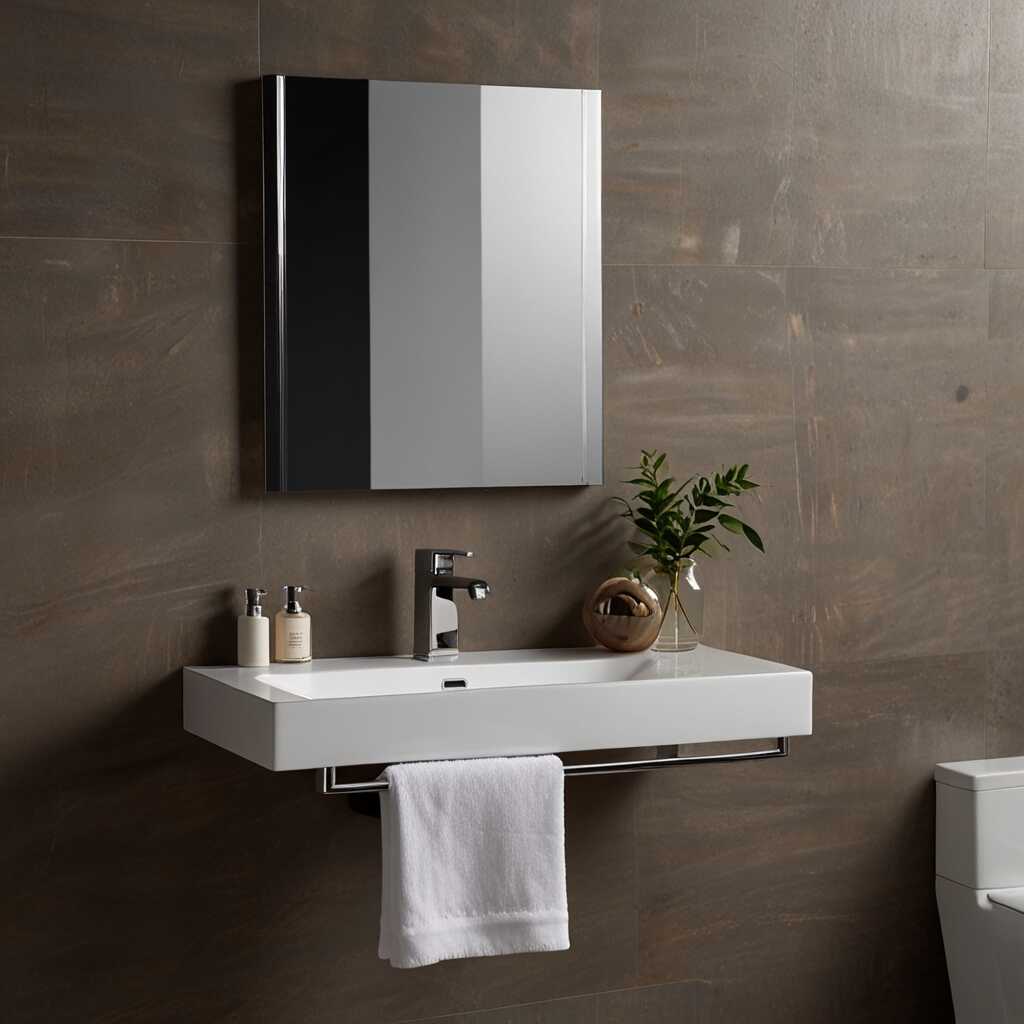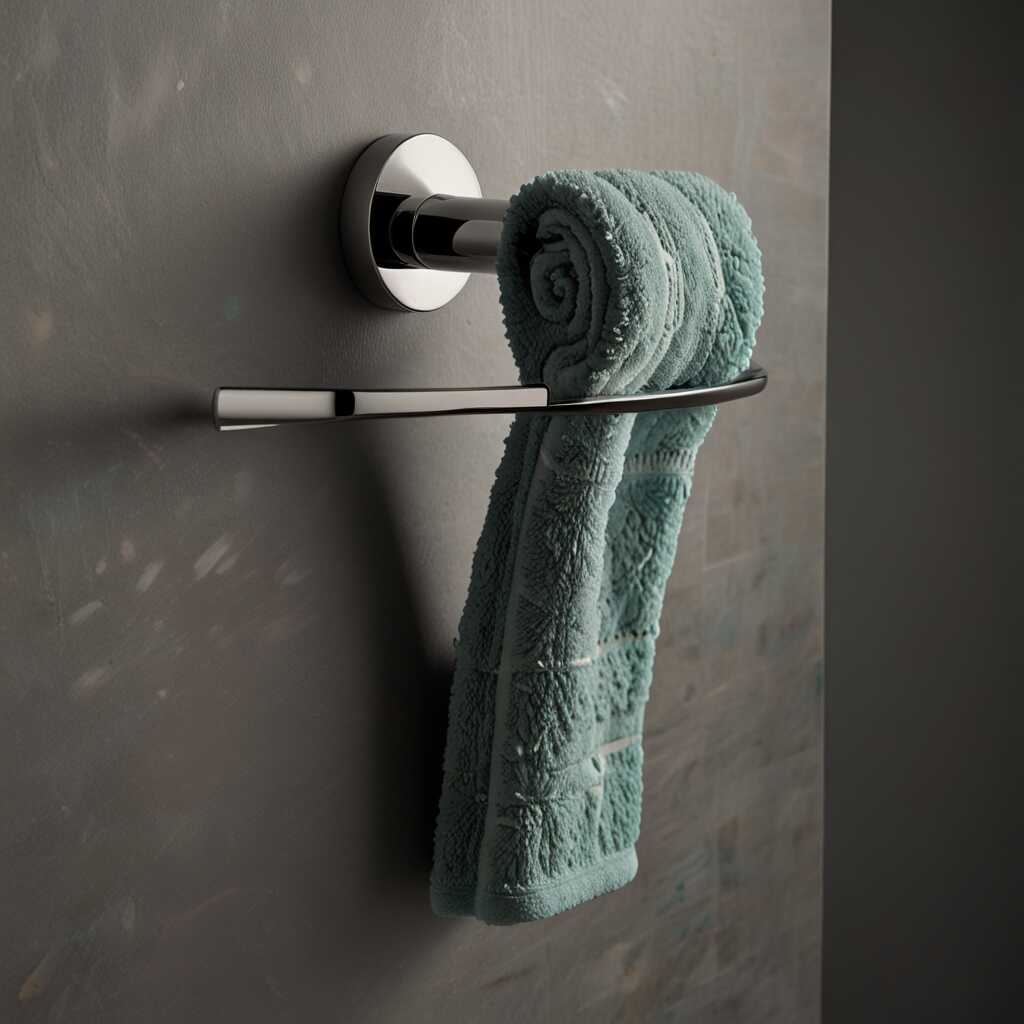Hospital-grade handicap accessories in home bathrooms offer essential support and enhance safety for individuals with mobility challenges. Transforming a home bathroom to accommodate handicap accessibility can significantly improve the quality of life for family members with disabilities. Hospital-grade accessories ensure durability and provide the necessary support to prevent accidents and injuries.
Table of Contents
- Customizable Handicap Solutions for Homes
- ADA-Compliant Shower Solutions
- High-Rated Safety Accessories for Home Bathrooms
- Grab Bars and Support Rails
- Cost-Effective Handicap-Compatible Home Upgrades
- Low-Cost Handicap Accessories Installation Questions
- Choosing the Right Handicap Toilet and Seat Height for Home Bathrooms
- How Tall Should a Handicap Toilet Seat Be?
- Hospital-Grade Non-Slip Flooring Options for Home Bathrooms
- What Are the Common Materials Used in Non-Slip Flooring?
- Using Professional Services for Handicap Bathroom Modifications
- How Much Do Professional Handicap Modifications Cost?
Customizable Handicap Solutions for Homes
There are various customizable handicap solutions available for home bathrooms, such as walk-in tubs, adjustable-height sinks, and non-slip flooring. The extent of handicap bathroom modifications often depends on the specific needs of the person using the bathroom. For those seeking ADA-compliant bathrooms, several products meet these stringent guidelines. Brands like Moen and Kohler offer Home Depot handicap solutions that are both stylish and functional. Customizable handicap solutions provide multiple accessible bathroom options that can be tailored to fit any home layout, creating a personalized and safe environment.
ADA-Compliant Shower Solutions
ADA shower requirements include features such as a roll-in entry, an adjustable showerhead, and foldable seats. Brands like Delta and Sterling offer excellent ADA-compliant shower solutions suitable for homes. To meet the ADA guidelines, a minimum clear floor space of 36×36 inches is needed, accessible shower features often include easy-to-reach controls and slip-resistant surfaces. Prioritizing home bath safety through handicap accessible showers can significantly enhance the independence and comfort of users.
High-Rated Safety Accessories for Home Bathrooms
Highly-rated hospital-grade bathroom safety accessories for homes include sturdy grab bars, non-slip bath mats, and raised toilet seats. Quality safety accessories enhance handicap accessibility by providing additional support where it is most needed. Brands like Drive Medical and Carex are well-known for producing top-rated bathroom accessories with high bathroom safety ratings. The costs associated with these safety accessories can vary; for example, a high-quality grab bar can range from $20 to $100, reflecting their enhanced bathroom accessibility benefits and hospital-grade build.
Grab Bars and Support Rails
There are several types of grab bars available for home bathrooms, including wall-mounted, bathtub, and corner grab bars. Installation of home bathroom grab bars typically involves securing them to wall studs to ensure a safe and sturdy hold. Top grab bar brands like Moen, Delta, and Kohler offer a variety of support rail options to suit different needs. The average cost of installing grab bars in a home bathroom can vary from $50 to $200 depending on the types of grab bars types used and the complexity of the grab bar installation process. Bathroom Accessories World is an expert on Hospital-Grade Handicap Accessories in Home Bathrooms.

- Improves bathroom accessibility
- Grab bars support balance
- Reduces chances of slips and falls
- Raised toilet seats add comfort
- Helps elderly maintain independence
- Increases confidence in using the bathroom
- Shower stools allow safe sitting

Overview and Comparison of Hospital-Grade Handicap Accessories for Home Bathrooms, Including Features, Costs, and Ratings
| Accessory | Function | Material | Cost (USD) | Customer Rating | Weight Capacity (lbs) |
|---|---|---|---|---|---|
| Shower Chair | Seating in Shower | Aluminum | 50-80 | 4.5 | 300 |
| Grab Bars | Stability | Stainless Steel | 20-40 | 4.8 | 500 |
| Raised Toilet Seat | Height Increase | Plastic | 30-60 | 4.2 | 250 |
| Transfer Bench | Bath Transfer | Aluminum | 100-150 | 4.7 | 400 |
| Handheld Showerhead | Ease of Use | Plastic | 25-45 | 4.3 | N/A |
| Non-Slip Mats | Prevent Slips | Rubber | 15-25 | 4.6 | N/A |
Cost-Effective Handicap-Compatible Home Upgrades
Some cost-effective handicap upgrades for home bathrooms include installing grab bars, non-slip mats, and handheld showerheads. Creating a bathroom upgrade budget helps in planning and can be managed using free online calculators. Discount handicap accessories can be found at stores like Home Depot and Lowe’s, offering savings up to 20% during sales. Financial assistance programs such as Medicaid and VA benefits provide affordable bathroom modifications. Government programs may cover certain low-cost handicap solutions, making it easier to complete essential upgrades.
Low-Cost Handicap Accessories Installation Questions
The total handicap accessories cost for basic installations like grab bars and shower seats can range between $100 and $300. Affordable handicap solutions include items like non-slip mats and shower chairs, often priced under $50. Stores like Home Depot offer the best deals on handicap bathroom accessories with frequent discounts up to 30%. DIY handicap installations can be done using online guides and videos, reducing your overall expense on budget-friendly bathroom upgrades.
Choosing the Right Handicap Toilet and Seat Height for Home Bathrooms
The ideal handicap toilet seat height for home bathrooms is between 17 and 19 inches from the floor. Brands like American Standard and Kohler offer the best handicap-accessible toilets known for their sturdy build and comfort features. Adjustable height toilets are indeed available, providing flexibility for various user needs. Handicap toilet installation typically requires ensuring proper floor clearance and securing the toilet firmly, which is essential for high-performance accessible toilet features.
How Tall Should a Handicap Toilet Seat Be?
The recommended height for a handicap toilet seat is 17 to 19 inches, which ensures ease of use. Height-adjustable toilet seats for home use are available from brands such as Toto and Bemis, giving users an easy solution for custom comfort. Comfortable and supportive handicap toilet seats are provided by companies like Kohler and Delta. For modification options, existing toilet seats can be raised using products like elevated seat cushions, offering practical toilet seat support and making home bathroom modifications easy.

- Grab bars hold up to 250 pounds
- Raised toilet seats increase height by 4 inches
- Three types of shower stools available
- Hand-held showerheads cost around $30
- Anti-slip mats reduce accidents by 30%
- Bathroom benches support up to 300 pounds
- Installation time averages 2 hours

Hospital-Grade Non-Slip Flooring Options for Home Bathrooms
The best hospital-grade non-slip flooring options for home bathrooms include vinyl, textured rubber tiles, and slip-resistant ceramic tiles, offering excellent bathroom floor safety and skid-resistant performance. Non-slip flooring installation involves meticulous preparation of the subfloor, cutting materials to size, and securely adhering them, often using a high-quality adhesive specific to bathroom environments. Easy-to-clean non-slip options like vinyl and rubber tiles are particularly favored for homes, requiring minimal effort to maintain their quality and skid resistance. Reliable non-slip brands such as Armstrong Flooring, Altro, and Daltile provide the most effective solutions for home bathroom flooring needs.
What Are the Common Materials Used in Non-Slip Flooring?
Common non-slip materials used for home bathrooms include vinyl, rubber, and textured ceramic tiles, each offering distinct advantages in home bathroom safety. Durable bathroom flooring materials like rubber and ceramic can last upwards of 10-20 years with proper maintenance, ensuring long-term bathroom floor safety. Best grip flooring materials, particularly textured rubber and ceramic tiles, significantly reduce fall risks, making them favorites for skid-resistant materials. Eco-friendly non-slip options such as recycled rubber and sustainable vinyl cater to environmentally conscious homeowners, bridging the gap between safety and eco-friendliness in non-slip material comparison.
Using Professional Services for Handicap Bathroom Modifications
It is advisable to hire a professional for modifying home bathrooms for handicap accessibility, ensuring expertise and compliance with safety standards. Professional handicap modifications often include the installation of grab bars, walk-in tubs, accessible showers, and hospital-grade non-slip flooring. Finding reputable modification companies involves checking online reviews, seeking referrals, and verifying credentials from associations like the National Association of Home Builders (NAHB). The average cost of professional services for handicap bathroom modifications ranges from $2,000 to $15,000, depending on the extent of the modifications, making it crucial to budget for these bathroom upgrade services.
How Much Do Professional Handicap Modifications Cost?
The price range for professional handicap bathroom modifications typically spans from $2,000 to $15,000 for high-quality, professional service rates. Discounts for modifications may be available through programs like Rebuilding Together or local disability organizations, potentially reducing overall handicap bathroom costs. The bathroom modification timeframe often varies between 1 to 4 weeks, ensuring a speedy yet thorough upgrade. Cost factors in modifications include the type of materials, labor intensity, and the complexity of the upgrades, influencing the final bathroom upgrade prices.